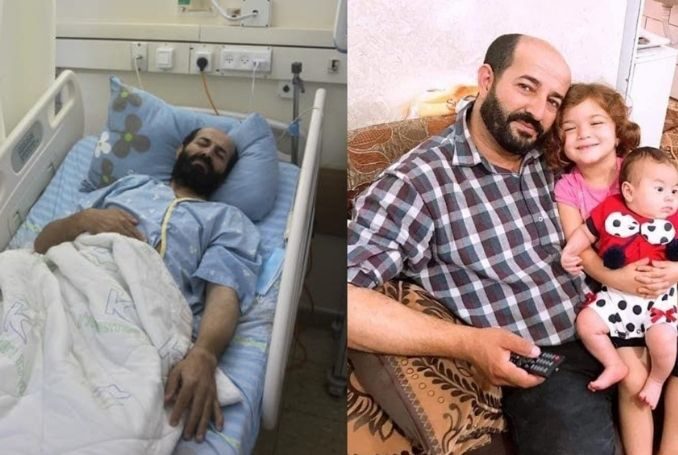
Palestinian hunger striker, Maher al-Akhras, who has been on a 78-day long fast protesting his administrative detention, today rejected a deal from the Israeli High Court that recommends his release from prison in return for ending his hunger strike.
Al-Akhras rejected the Israeli High Court deal after only recommending his release by November 26 instead of ruling in favor of his release as requested by his lawyer in the petition submitted to the Court and rejected today.
As a result, according to his lawyer, al-Akhras decided to continue with his hunger strike until there is a definite and clear position from the High Court or the Israeli occupation authorities setting a specific date for his release and not only a recommendation.
#Palestinian #Prisoner #AlAkhras Enters 77th Day of #HungerStrike (VIDEO) https://t.co/PLYCld8P5X via @PalestineChron #FreeMaherAlAkhras #FreeAlAkhras pic.twitter.com/CA1NkMDdAn
— @palestinechron (@PalestineChron) October 11, 2020
Palestinian Authority Prime Minister Mohammad Shtayyeh called for his immediate release following the serious deterioration in his health.
Shtayyeh said at the start of the weekly Palestinian cabinet meeting held in Ramallah that he holds the Israeli government fully responsible for the life of al-Akhras, urging international pressure on Israel to release him and to end its illegal administrative detention policy against Palestinian activists, who currently number 350 held in Israeli jails without charge or trial and based on secret evidence.
Al-Akhras, 49, from the northern West Bank district of Jenin, started his hunger strike immediately after his detention from his home on July 27 after which he was slammed with a four-month administrative detention order that is supposed to end on November 26 but could be renewed for an indefinite number of times.
Advocacy groups and his family say that al-Akhras is currently kept at an Israeli hospital following a serious and critical deterioration in his health, particularly after he stopped taking food supplements or undergoing physical checkups. They fear he could die at any moment.
“Administrative detention is Israel’s go-to legal proceeding when it simply wants to mute the voices of Palestinian political activists but lacks any concrete evidence that can be presented in an open, military court,” wrote Palestinian journalist and editor of The Palestine Chronicle, Ramzy Baroud.
“Not that Israel’s military courts are an example of fairness and transparency. Indeed, when it comes to Palestinians, the entire Israeli judicial system is skewed. But administrative detention is a whole new level of injustice,” Baroud added.
(Palestine Chronicle, WAFA, Social Media)







